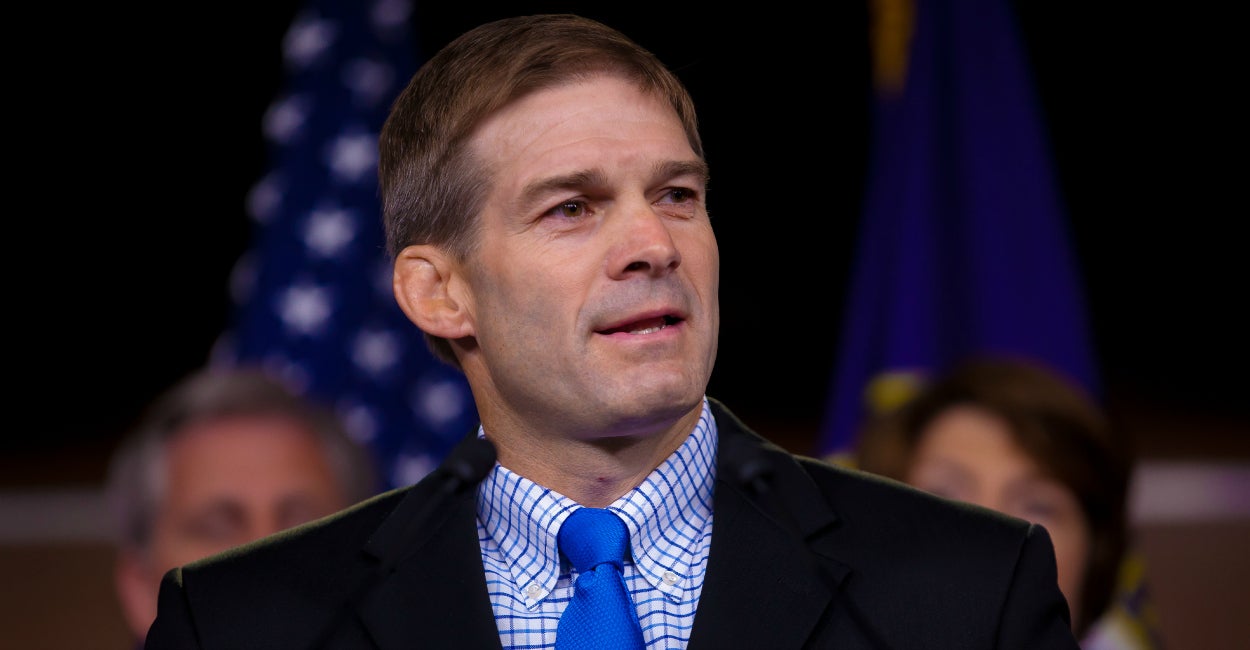Table Of Content

In its early years, the House Freedom Caucus focused on fiscal conservatism, seeking to limit government spending and supporting shutting down the federal government to achieve its goals. It also championed repeal of the Affordable Care Act (ACA) and implementation of stricter immigration policies. Conservatives left that meeting optimistic about their chances and told reporters the speaker was considering alternative paths.
Scoop: House Freedom Caucus drama erupts over its next leader - Axios
Scoop: House Freedom Caucus drama erupts over its next leader.
Posted: Mon, 11 Dec 2023 08:00:00 GMT [source]
Speaker Pelosi on Party Negotiations and Debt Limit
The whole process, then, went completely off-track after McCarthy was ousted as speaker and the newly installed speaker, Mike Johnson, had to learn the ropes. When all was said and done, “full-year government funding” wasn’t achieved until nearly halfway through the fiscal year, late last month. All the far-right griping achieved, in other words, was the delayed implementation of domestic spending cuts. The party’s right wing forced McCarthy to make deep concessions beforeallowing him to become speaker after 15 rounds of voting over five days in January.
In GOP Contest, Trump Supporters Stand Out for Dislike of Compromise
In Alabama, Moore has the backing of the House Freedom Fund in his race against fellow GOP Rep. Jerry Carl, after they were drawn into the same district as part of court-mandated redistricting in the state. Most of the eight Republicans who moved to oust then-Speaker Kevin McCarthy last year were Freedom Caucus members, and members of the group have opposed deals struck by new Speaker Mike Johnson in attempts to keep the government open this year. “He’s being much more inclusive and open about including us and sitting at the table and talking through everything,” he said.
Membership policy
At the same time, he didn’t sound open to compromise on the Freedom Caucus’s bill. HFC members have also demanded a return to “regular order” as a condition of their support for a consensus Speaker candidate. Opening the amending process, for example, would allow more amendments not just from Republicans, but also from Democrats—and, as Speaker Boehner’s experience with appropriations bills this summer revealed, that can cause more problems than it solves. As this largely unprecedented saga continues, then, we may well see new and different tools and tactics emerge as Republicans work to build a winning coalition for the next Speaker of the House. To win the Republican nomination for Speaker today, McCarthy needed 124 Republican votes—a majority within his party. To be elected by the full House at the end of October, however, he would have needed 218 votes—a majority of the full chamber, and votes that traditionally come only from fellow majority party members.
“It’s unfortunate that the establishment is pushing moderates who support reckless spending rather than focusing their funds on maintaining and increasing the Republican majority, and we believe that Republican primary voters agree with us,” McIntosh added. Deeply reported insights into legislation, politics and policy from Sacramento, Washington and beyond. They even caused havoc for then-President Trump at times, demanding his Obamacare repeal plan move hard to the right to earn their support. Although hard-line conservatives in the House succeeded in making their changes to the spending bill, the current fight is unlikely to end in their victory. The Senate is still in Democrats’ hands, as is the White House, and Democratic negotiators will insist on stripping out the most controversial measures before allowing the bill to become law. McCarthy has tried to project calm in the face of the hard-liners’ continued demands.
— Spending levels below the top-line numbers that McCarthy had agreed to with President Joe Biden as part of a bill to increase the nation’s debt ceiling. Greene has also not noticed her resolution as privileged, meaning the House is not forced to vote on vacating Johnson unless she changes her mind. Several House Republicans are skeptical Greene’s efforts to oust Johnson would be successful, and House Democrats have said they would consider saving the speaker. But Roy, along with his other Freedom Caucus colleagues, couldn’t do much about it and probably won’t be able to stop similar bipartisan bills in the future. The Fund's other endorsements in 2018 included Russ Fulcher in ID-01, TN-06's Judd Matheny, TN-07's Mark Green, and TX-21's Chip Roy. All were conservative candidates running for open seats in likely or safely Republican districts.
No Presidential Immunity for Personal Crimes Dressed in 'Official' Clothing
Ahead of the vote, Rep. Michael McCaul, who chairs the Foreign Affairs Committee, said, "History will judge us by our actions here today." The House-passed bills are similar to a $95 billion package that passed the Senate in February but then stalled in the House. This is not a dynamic that’s difficult to understand or that they haven’t been lectured about a thousand times. They just prioritize the politics of crying betrayal over any small policy successes. The most conservative voices are getting shut out, and the House Freedom Caucus, ironically, has made sure of it. The sustainability of it all will be decided by whether Mr. Johnson continues down a path of realistic policymaking or feels the urge to now appease the discontents who have worked to stymie him from the start.

Information about voting
The Freedom Caucus members and allies have a median DW-NOMINATE score of +0.681, substantially higher than the median for all other House GOP members (+0.455). The least conservative Freedom Caucus-aligned member, in fact, is still more conservative than the median non-Freedom Caucus House Republican. And 10 Freedom Caucus members are more conservative than the most conservative nonmember. Ideologically, Freedom Caucus members and allies are among the most conservative of House Republicans, with several falling on the rightmost end of the spectrum. Data on members’ birthdates and dates in office was taken primarily from the online Biographical Directory of the United States Congress, supplemented by information compiled by CQ Roll Call. Data on members’ racial and ethnic backgrounds came from the Congressional Research Service.
Freedom Caucus Chair Bob Good backs Capitol rioter Derrick Evans' bid for Congress - Axios
Freedom Caucus Chair Bob Good backs Capitol rioter Derrick Evans' bid for Congress.
Posted: Tue, 02 Apr 2024 07:00:00 GMT [source]
Over the weekend, McCarthy and the White House announced that they’d finally reached an agreement. Congress would raise the debt ceiling for the next two years, and the White House would agree to some six hundred and fifty billion dollars in cuts over the following decade. On the issue of work requirements, the White House agreed to some new age restrictions sought by Republicans on cash welfare and food stamps but left Medicaid untouched. McCarthy and his negotiators could plausibly claim victory, yet so could the President. The caucus’s members, who had previously been vocal critics of government spending and debt during the administration of Pres. Barack Obama, were less outspoken about such issues during Trump’s tenure, even as the federal deficit continued to grow.
Some 71% of the identified members and allies of the caucus (35 of 49) have served in Congress for six years or fewer, a count that includes nine freshmen. The longest-serving Freedom Caucus member, new House Judiciary Committee Chairman Jim Jordan of Ohio, is in his ninth term. By contrast, 58% of all other House Republicans (101 of 173) have spent six years or less in Congress, and 17 of them (10%) have served in the House for a total of 20 years or longer. Pew Research Center compiled its list from a variety of sources, including members’ websites, the 2022 endorsement list from the caucus-affiliated House Freedom Fund, and published reports from reputable news outlets. For each member, we sought confirmation from at least two unrelated sources before adding them to the list.
In January 2021, the Freedom Caucus was almost unanimous in opposing the certification of President Joe Biden’s victory over former President Donald Trump. Of the 40 current Freedom Caucus members and allies who were serving at that time, 38 supported at least one objection to counting Biden’s electoral votes. A smaller share of all other House Republicans seated at the time (about 60%) did so. McCarthy eventually won the speaker’s gavel on the 15th ballot, but not until he agreed to ensure more Freedom Caucus representation on the powerful Rules Committee and other key panels. McCarthy also agreed to a passel of rule changes long sought by the Freedom Caucus, many of them intended to shift power away from the speaker’s office and toward committee chairs and rank-and-file members.
He’s managed to weather the House’s roiling crises so far without losing his job or triggering a U.S. debt default. And after enduring the public embarrassment of his 15-ballot fight to become speaker and a recent Freedom Caucus tantrum over his debt-ceiling deal with President Biden, he seems resigned to the mayhem. After Republicans approved those amendments in a marathon voting session Thursday night, Democrats pulled their support from the defense spending bill, forcing Republicans to pass it by themselves. Greene threatened to kick off that process again on Friday morning, filing a motion to vacate against Johnson over negotiating with Democrats on the final spending package. But in an election year with little change after ousting McCarthy, there’s little appetite to supplant Johnson.
The publication reported that the Freedom Caucus does not expect any such maneuvers but is remaining vigilant just in case any of their colleagues try to be silent but deadly to their cause. The far-right House Freedom Caucus has formed a crack team of conservative lawmakers to monitor the House floor lest Speaker Mike Johnson or other Republicans try to limit their power. But aid for Ukraine remains deeply unpopular with large portions of Johnson's conference, who argue the House shouldn't provide further funding without strengthening security at the U.S.-Mexico border. In a statement Saturday, President Biden thanked lawmakers for coming together to pass the funding for U.S. allies that he has been pushing for months.
It’s a smorgasbord of non-starters for the Democratic-controlled Senate and the White House, signaling the challenges House Speaker Kevin McCarthy will face next month to get a bill passed in the House without alienating a sizeable share of his conference. In the early months of Johnson’s speakership, the previously little-known Republican was the source of frustration for some members who described him as dithering. Ideologically speaking, they’re among the most conservative of House Republicans, though not all are on the rightmost end of the spectrum. Ballotpedia features 486,932 encyclopedic articles written and curated by our professional staff of editors, writers, and researchers. On May 29, 2018, state Sen. Stace Nelson (R) and state Rep. Liz May (R) announced they were forming the Conservative Republican Caucus, which they said would be separate from the mainline Republican Party and similar to the House Freedom Caucus.
It also includes a version of a House bill that passed overwhelmingly in March that forces TikTok to divest from its Chinese parent company or face a ban in the U.S. After months of discussions, a group of three senators—one Republican, one independent, and one Democrat—reached a border deal that would have required the administration to, among other things, restrict asylum claims when southern border encounters surged. It was the first time in modern memory that Democrats had agreed to a major immigration deal that was almost entirely enforcement-based, without insisting in return on immigrants’ being guaranteed a path to legal status or citizenship. House Republicans (and especially Freedom Caucus Republicans) were never going to get much out of this Congress. The greatest accomplishment of their incredibly slim House majority was always going to be that they blocked the Democratic agenda for two years.






















